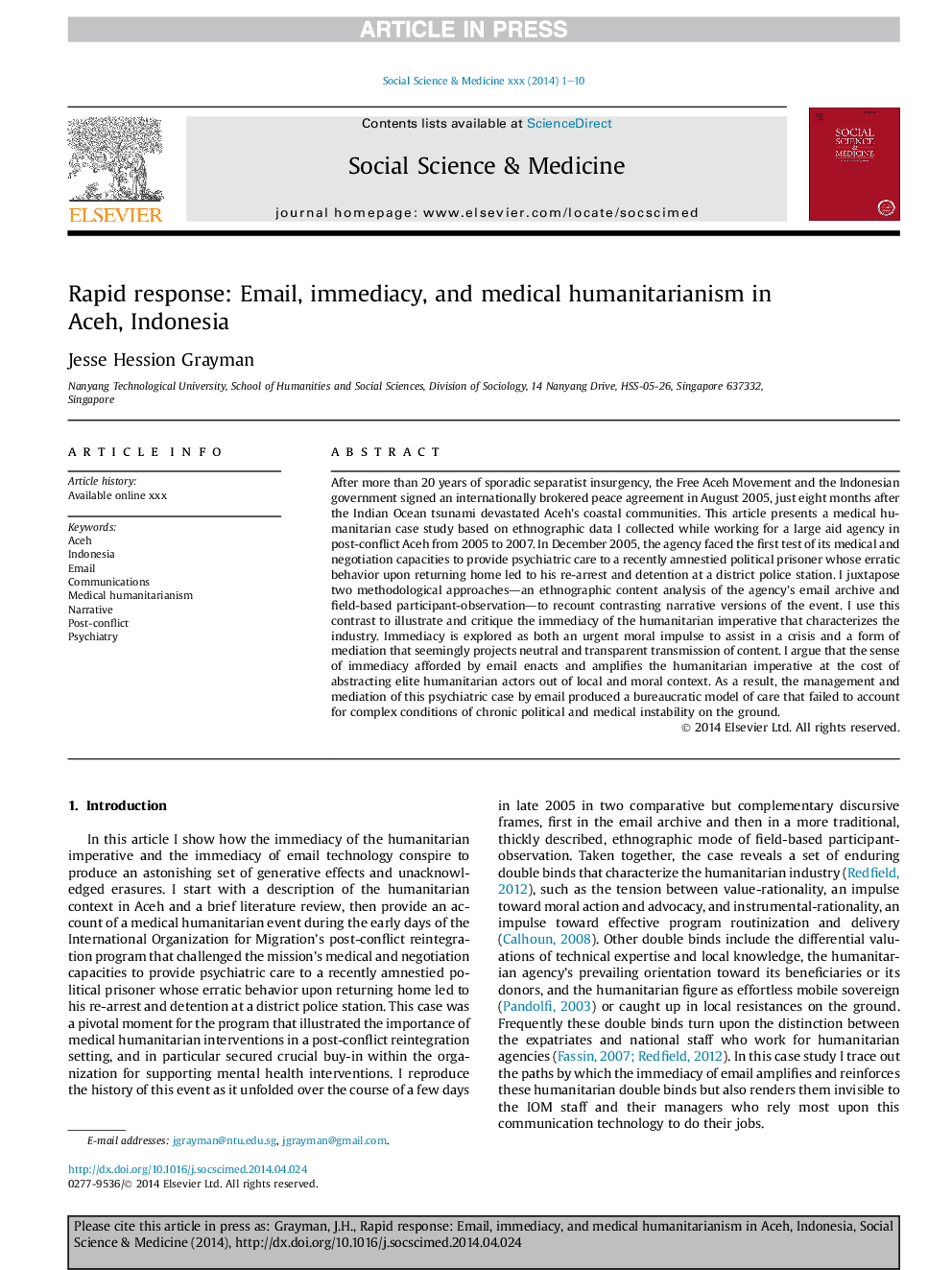| Article ID | Journal | Published Year | Pages | File Type |
|---|---|---|---|---|
| 7334201 | Social Science & Medicine | 2014 | 10 Pages |
Abstract
After more than 20 years of sporadic separatist insurgency, the Free Aceh Movement and the Indonesian government signed an internationally brokered peace agreement in August 2005, just eight months after the Indian Ocean tsunami devastated Aceh's coastal communities. This article presents a medical humanitarian case study based on ethnographic data I collected while working for a large aid agency in post-conflict Aceh from 2005 to 2007. In December 2005, the agency faced the first test of its medical and negotiation capacities to provide psychiatric care to a recently amnestied political prisoner whose erratic behavior upon returning home led to his re-arrest and detention at a district police station. I juxtapose two methodological approaches-an ethnographic content analysis of the agency's email archive and field-based participant-observation-to recount contrasting narrative versions of the event. I use this contrast to illustrate and critique the immediacy of the humanitarian imperative that characterizes the industry. Immediacy is explored as both an urgent moral impulse to assist in a crisis and a form of mediation that seemingly projects neutral and transparent transmission of content. I argue that the sense of immediacy afforded by email enacts and amplifies the humanitarian imperative at the cost of abstracting elite humanitarian actors out of local and moral context. As a result, the management and mediation of this psychiatric case by email produced a bureaucratic model of care that failed to account for complex conditions of chronic political and medical instability on the ground.
Related Topics
Health Sciences
Medicine and Dentistry
Public Health and Health Policy
Authors
Jesse Hession Grayman,
